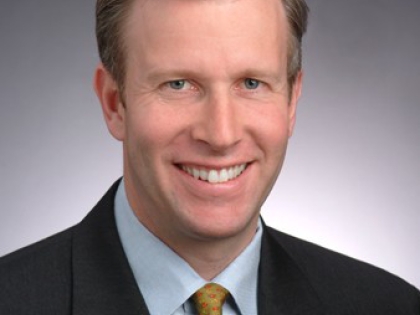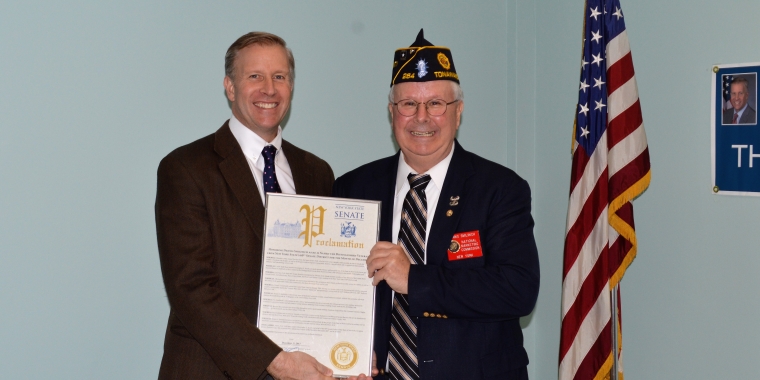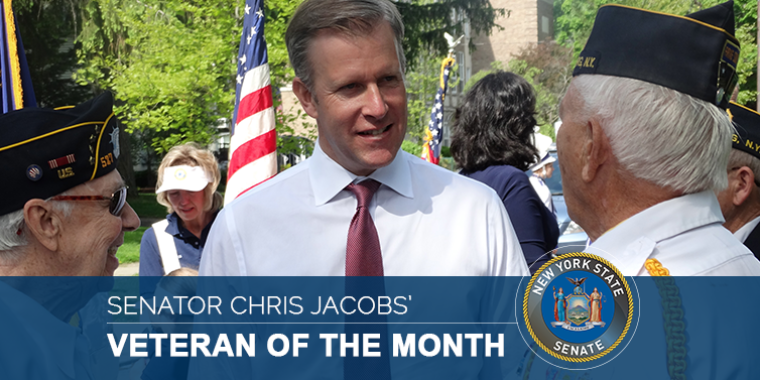
Jacobs, Heroin Task Force Propose Largest Ever State Commitment to Prevent Heroin & Opioid Abuse
Senator Jacobs
March 13, 2018
(Albany, New York) - New York State Senator Chris Jacobs, a Co-Chair of the Senate’s Task Force on Heroin and Opioid Addiction, today unveiled details of the Senate Majority’s extensive response to the challenges facing communities in the fight against opioids and heroin. As part of the Senate’s 2018-19 Budget proposal to be taken up tomorrow, Jacobs said the conference will commit to providing the largest funding level ever to combat opioid abuse, and will propose far-reaching health and safety initiatives to reduce the harmful effects of drug abuse on everyone from infants to adults.
“This record $265 million in funding reinforces the Senate Majority’s commitment to eradicating the heroin and opioid abuse epidemic in New York State,” said Jacobs. “Based on what we learned in hearings all across the state, these resources are very strategically targeted where they will have the greatest impact in this fight - prevention, treatment and recovery, and giving law enforcement the necessary tools to stem the flow of illegal substances.”
The very comprehensive proposal will include measures to reduce exposure to opioids for children and adults, limit and provide alternatives to opioid use, and better define and restrict access to controlled substances like fentanyl. It calls for the screening of expectant mothers to prevent and treat addiction in infants and has a number of initiatives designed to encourage those struggling with addiction to pursue proven methods of recovery. It also provides new tools for law enforcement while increasing state support $37 million more than the Executive Budget proposal.
The Senate’s Joint Task Force on Heroin and Opioid Addiction held numerous forums throughout the state, including one in Buffalo last July. Jacobs credited these forums, along with legislative budget hearings, for providing the opportunity to solicit input from a wide array of stakeholders whose experiences on the front line in the fight against addiction helped inform the initiatives being voted on tomorrow.
“The active participation from healthcare providers, law enforcement, community service organizations, educators and family members all contributed to the far-reaching health and safety proposals we are unveiling today,” said Jacobs. “The collaborative approach undertaken by the Task Force is enabling us to improve upon the progress made last year,” Jacobs concluded.
Details of the Senate Majority Proposal are as follows:
Supporting Prevention
- Enact the Drug Take Back Act to get unused and unneeded medications out of medicine cabinets.
- Ensure labels on opioid prescriptions warn of the highly addictive potential of controlled substance medications.
- Reform prescribing practices to:
- Limit initial prescriptions from a seven-day to a three-day supply;
- Require patients prescribed opioids for thirty-days or longer to have a pain management plan with their prescriber;
- Require written consent from parents or guardians for the prescription of opioids to minors;
- Require the Department of Health to develop guidance on the administration of opioid antagonists; and
- Establish a demonstration program to reduce opioid prescribing by utilizing emergency department physician collaboration to control pain through alternative means, including non-opioid medications.
Expanding Treatment
- Authorize the Office of Alcoholism and Substance Abuse (OASAS) to provide funding to substance use disorder programs operated by for-profit agencies.
- Establish a jail-based substance use disorder treatment program.
- Require testing of newborns for Neonatal Abstinence Syndrome.
- Establish a program on screening expectant mothers for opioid addiction and linking them with care.
- Establish a workgroup and provide education for healthcare providers on screening and caring for mothers with an opioid addiction.
- Prohibit prior authorization for outpatient substance abuse treatment.
- Establish an OASAS ombudsman to assist consumers and providers with insurance issues, including network adequacy.
- Require hospitals and Emergency Room physicians to notify a patient’s prescriber that the patient has been treated for a controlled substance overdose.
Encouraging Recovery
- Establish a voluntary certification process for sober homes.
- Codify the Peer Engagement Program, connecting individuals with substance use disorders to treatment and recovery services.
- Establish an infant recovery pilot program with at least four infant recovery centers in areas of need for infants suffering from drug withdrawal resulting from in utero exposure.
- Establish the Family Support and Recovery Services Program to provide recovery services and support to individuals exiting treatment and their families for up to 12 months after leaving a treatment program.
Enhancing Enforcement
- Criminalize the sale of a controlled substance on the grounds of a drug or alcohol treatment center, or within 1,000 feet of such facilities.
- Make it a crime to offer or accept any kickback from an individual or entity that provides substance abuse services in exchange for patient referral and admission.
- Establishes appropriate level penalties as it relates to heroin sales.
- Makes the sale of 2 milligrams or more of Carfentanil a Class A-II felony and the sale of 10 milligrams or more of Carfentanil a Class A-I felony.
- Update controlled substances penalties to reflect emerging issues.
Addressing Fentanyl and other Synthetic Drugs
- Update the controlled substances schedule to promote consistency with the federal controlled substances schedules.
- Add new derivatives of fentanyl to the controlled substances schedule.
- Increase the criminal penalties for the sale of an opiate containing a fentanyl derivative.
The Senate will take action on these measures on Wednesday, March 14, and continue to make addressing heroin and opioid abuse a priority during ongoing budget negotiations.
Share this Article or Press Release
Newsroom
Go to NewsroomJacobs Honors Veteran of the Month Dennis Smilinich
December 12, 2017

Jacobs, Lyme Task Force, Seek to Develop Statewide Disease Protocol
December 8, 2017
Jacobs Bill Would Decrease Sewer Overflows Into Area Waterways
November 17, 2017
